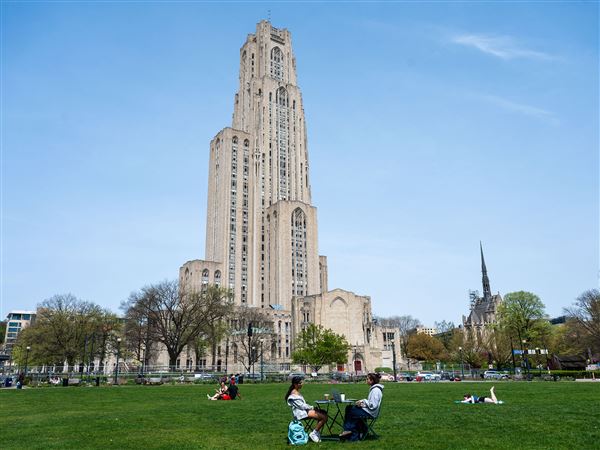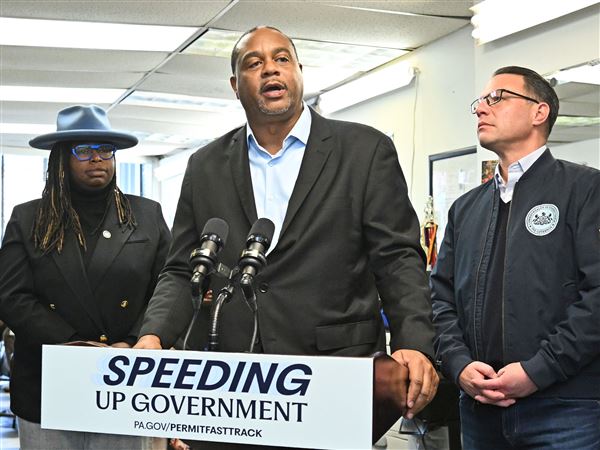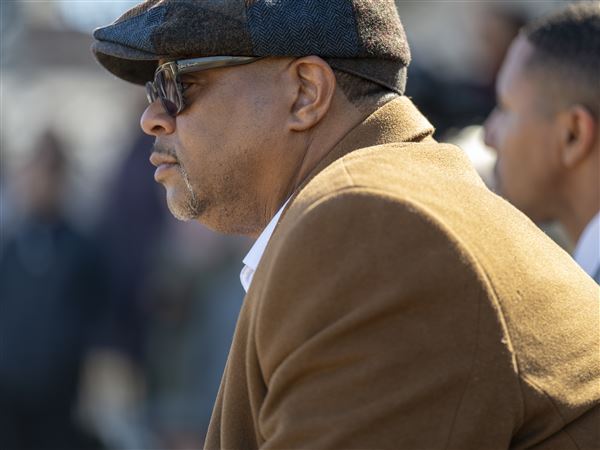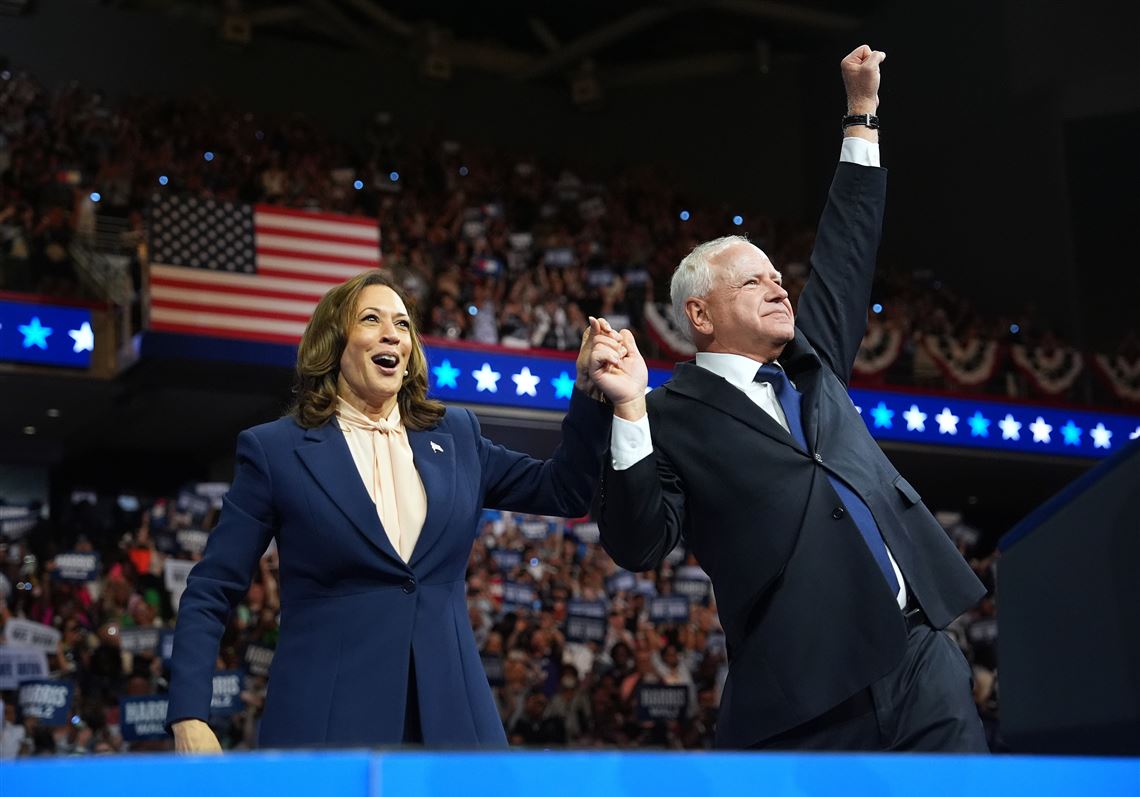In Philadelphia on Aug. 6, an enormous crowd of supporters exulted in the announcement of Minnesota Gov. Tim Walz as Vice President Kamala Harris’s running mate for the White House. But at the same time, another much quieter drama unfolded: A reporter for the Pittsburgh Post-Gazette, the second-largest news organization in the most important battleground state, was being denied access to the venue.
I hesitated about whether to write about this. While I, and the entire editorial team, operate independently of the newsroom, I didn’t want revealing the Harris-Walz campaign’s treatment of the Post-Gazette to influence readers’ perceptions of the newspaper’s work. I also don’t want to trigger further retribution from the campaign, something an opinion journalist shouldn’t have to consider, but realistically must.
Ultimately, however, I decided the newsroom’s integrity and professionalism — and specifically that of veteran reporter Jonathan D. Salant, who experienced this rebuff first-hand — can and will speak for itself.
And I decided it would be riskier, for us and for our profession, to ignore this behavior than to speak out about it. If political campaigns, not to mention sitting vice presidents, can exclude the press at their discretion, then no one’s freedom to cover government and politics is safe.
An unusual labor action
The Harris-Walz campaign continues to take measures to exclude Post-Gazette reporters and photographers from its events due to an ongoing, and very unusual, labor action at the newspaper. The journalists’ strike is unusual because it has gone on so long — nearly two years, making it the longest ongoing strike in America — but also because it has only ever attracted the support of a small minority of the bargaining unit.
Due to abstentions and exclusions from the ballot, only about one-third of union members voted to authorize the strike. At this moment, about one-quarter of the original union remains on the line. The lion’s share of members continue to work, and many of the remainder have found other jobs. Editors of the opinion pages are traditionally non-union.
The labor actions at the newspaper began in October 2022 when a Teamsters unit went on strike, mostly over the long-anticipated suspension of a legacy health care plan. Other staff followed, including some printers and advertising workers. The journalists’ strike began as a measure of solidarity with the other units, but has since taken on a life of its own, while the union has a leading role in public relations — especially in browbeating Democratic officials and candidates into declining to speak with those who continue to work at the Post-Gazette.
The Teamsters ultimately came to terms with the company. Negotiations are ongoing with the other unions.
New normal
This is the context in which the Harris-Walz campaign decided to bar Post-Gazette reporters from the veep announcement, from parts of the Democratic National Convention and (as of this writing) from all future events where they have the ability to control access. It’s a form of political pandering at the expense of core democratic principles — exactly what the campaign claims to be fighting against in the Republican Party.
Of course, former President Donald Trump is notoriously not a friend of the press, especially the so-called mainstream media. Some readers will be dismayed that I’m even raising these concerns about Harris-Walz, given not just Mr. Trump’s past but his ongoing shenanigans, such as this week’s stunt at Arlington National Cemetery, where campaign officials reportedly brushed aside a cemetery employee for a photo op.
But the entire point of the Harris-Walz campaign is that it’s supposed to be better. It’s supposed to restore American pride and American values. It’s supposed to provide the return to “normalcy” that President Joe Biden could not.
Denying access to disfavored press as a favor to political allies, however, just further institutionalizes the new normal, where the application of all principles depends on whether you’re a friend or an enemy. Today, the Harris-Walz campaign considers the Post-Gazette to be its enemy, and it denies us the rights accorded to others. Tomorrow, who’s next?
Destroy it to save it
That’s the long-term problem people miss — especially other members of the media — when they brush off the campaign’s actions as trivial, or this complaint as a wheeze: The campaign is setting a precedent, one that will absolutely be applied later, and not by whom and to whom you’d want or expect.
Most of the people in this newsroom with me are union members, and they never expected they’d be in this situation, working to report and to deliver the news while a small contingent of their colleagues agitate against them. But that’s life: You can never be sure what choices you’ll be forced to make, which side you’ll land on, and who’ll be on the other side.
And if you can’t imagine ever landing on the wrong side of power, or on the wrong side of respectable opinion, I’d suggest imagining a little harder. I’d also suggest journalism might not be your calling.
Because the greatest threats aren’t always the most obvious ones, and the more anti-democratic tactics we tolerate in the name of saving democracy, the less democracy there will be left to save.
Brandon McGinley’s previous column was “In Gaza referendum mess, activists’ fecklessness has exposed Gainey’s weakness.”
First Published: August 30, 2024, 2:59 p.m.
Updated: August 30, 2024, 3:00 p.m.
















